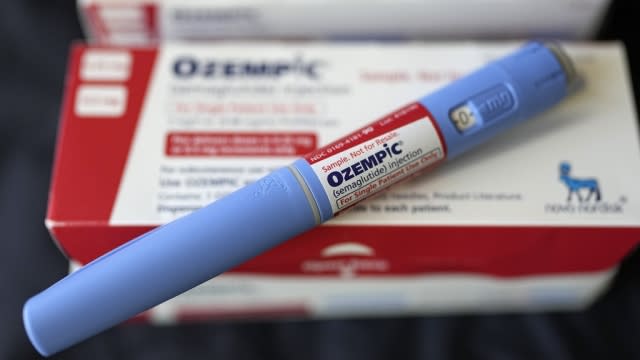Weight-loss drugs are a lot more expensive in US than other countries

KFF, a nonprofit health policy research organization, found that Americans are paying way more than other nations for common weight-loss drugs such as Rybelsus and Ozempic.
According to KFF, the average one-month supply of Ozempic costs Americans $936. The same supply in Japan costs $169. But the cost in Japan is expensive by global standards.
A supply of the drug in Sweden costs $96. It's $87 in France and $83 in Australia.
What about Rybelsus? In the U.S., a one-month supply goes for $936. In the Netherlands, it is $203. A supply of the drug in Canada costs $158. It's just $68 in Japan.
SEE MORE: This weight loss drug also cuts risk of heart problems, maker says
One thing affecting prices is the U.S. is considered the most obese nation in the world. According to data from the Organisation for Economic Co-operation and Development, about 40% of U.S. adults are obese. Sweden has an obesity rate of 15%, while it's about 5% in Japan.
"What impact these drugs have on total health costs in a country will depend not just on the net prices for the drugs, but also on how many people use them," KFF wrote in its report. "High rates of obesity and potential market demand for the weight-loss drugs could result in a significantly higher impact on total health spending in the U.S. than in peer nations. KFF polling found about half of adults in the U.S. would be interested in taking prescription weight-loss drugs, though interest drops if the drug is not covered by insurance or after hearing patients might gain weight back after stopping use."
2019 data from the U.S. Government Accountability Office indicates that 68% of costs associated with weight-loss drugs come out of pocket. The report indicated that some Medicare and Medicaid plans will cover these expenses, but often require prior authorization for coverage.
SEE MORE: New weight loss drug retatrutide shows promise in trial, doctors say
Despite their costs, these medicines have given doctors and the public hope that the U.S. can reverse the trend of rising obesity. Many of these drugs claim to help people lose over 15% of their body weight.
"I think it's a great tool," said Dr. Meera Shah, a Mayo Clinic endocrinologist. "I think for a lot of people, it certainly makes a significant difference to how they feel about food and how they feel about their own hunger signals and their ability to control that. And that's very powerful."
